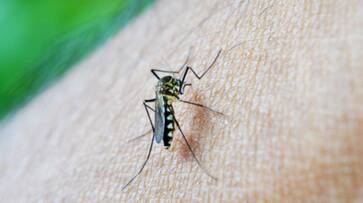Rising dengue cases in India prompt concern over its neurological impact, highlighting risks beyond fever and body aches.
As dengue cases surge across India, encompassing regions like Karnataka, Kerala, Telangana, Andhra Pradesh, Odisha, Delhi, and Maharashtra, health experts are shedding light on a critical but often overlooked aspect of the disease.
Traditionally characterized by symptoms such as fever, body aches, and fatigue, dengue is now revealing its alarming potential to severely impact the brain and nervous system. This revelation has spurred urgent calls to enhance both prevention and treatment strategies, as neurological complications can lead to enduring consequences and even life-threatening outcomes.
The dengue virus possesses neurotrophic properties, enabling it to breach the blood-brain barrier—an essential shield safeguarding the brain—and directly assault neurons. This invasive behavior results in neurological impairments, triggering inflammation within the brain and spinal cord. In severe cases, reduced platelet counts, known as thrombocytopenia, can exacerbate these effects, potentially leading to hemorrhage.
Health professionals are increasingly acknowledging these neurological manifestations as significant concerns, particularly among severe dengue cases. Their research underscores the critical need for heightened awareness and meticulous monitoring to mitigate the risks posed by this viral infection. By recognizing and responding promptly to these challenges, healthcare providers and communities can better safeguard against the neurological impacts of dengue, ensuring comprehensive care and support for affected individuals.
Last Updated Jul 12, 2024, 3:09 PM IST









![Salman Khan sets stage on fire for Anant Ambani, Radhika Merchant pre-wedding festivities [WATCH] ATG](https://static-gi.asianetnews.com/images/01hr1hh8y86gvb4kbqgnyhc0w0/whatsapp-image-2024-03-03-at-12-24-37-pm_100x60xt.jpg)
![Pregnant Deepika Padukone dances with Ranveer Singh at Anant Ambani, Radhika Merchant pre-wedding bash [WATCH] ATG](https://static-gi.asianetnews.com/images/01hr1ffyd3nzqzgm6ba0k87vr8/whatsapp-image-2024-03-03-at-11-45-35-am_100x60xt.jpg)


